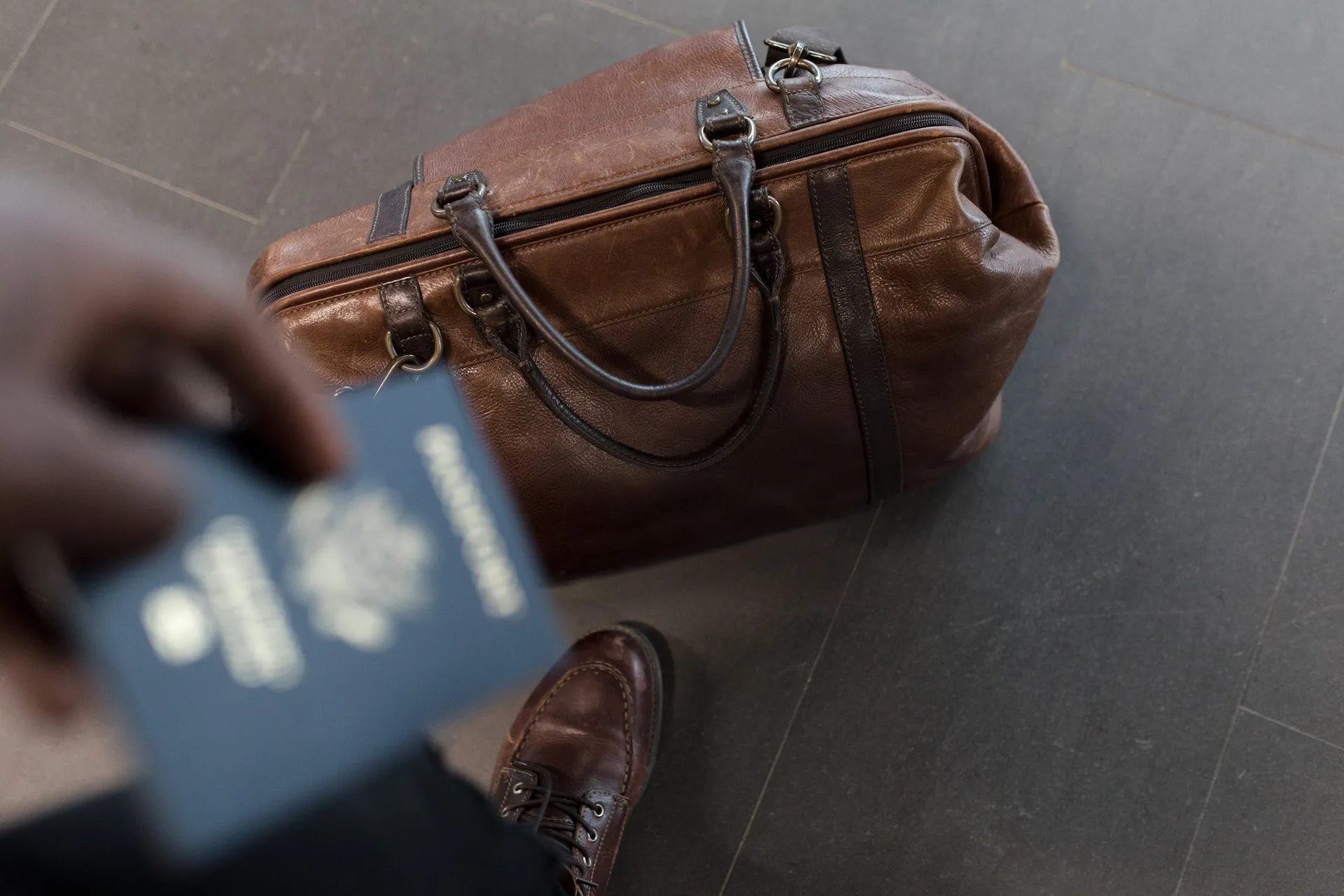Child Dependent Visa Ireland
The Ireland Child Dependent Visa allows Irish citizens and those residing in Ireland to bring their children to Ireland. Find out what the eligibility requirements and the application process are.
To receive assistance with your Irish dependent visa for child, call our experts today on +44 (0)333 414 9244.
Read our 1001 reviews
Request a call back from our immigration experts
Benefits of Choosing IAS‘ Ireland Immigration Lawyers
When it comes to obtaining an Ireland visa or permit, IAS Ireland immigration lawyers are well-equipped to help you.
With IAS’ track record of successfully helping clients visit or immigrate to Ireland successfully, we can help you achieve your goal.
Our dedicated immigration lawyers provide our services through a comprehensive and personalised approach. With IAS, you enjoy:

Compassionate support from an experienced immigration lawyer dedicated to your success



Support in gathering supporting documents and completing a high-quality application.



Confidence that your case is being handled by an experienced team.



In-house document checks done by lawyers who are well-versed in Ireland immigration matters.
Services we Provide
What is Ireland Dependent Visa for Child?
The Child Dependent Visa belongs to the Join Family visa category and it is intended for children of Irish citizens or individuals lawfully residing there. That means that those who are in Ireland on a valid long stay visa such as the Employment Visa can use this route to bring their dependent children to Ireland.
The Child Dependent Visa is a Long Term ‘D’ Visa, which means that those who receive it can stay in Ireland for longer than three months.
To be able to come to Ireland on this visa, dependents have to be younger than 18 years old. Dependent children who are between the ages of 18 and 23 might apply for it provided that they are in full-time education.
What are the financial requirements for the Ireland Child Dependent Visa?
To be able to bring your child to Ireland on the Child Dependent Visa, you have to meet the following financial requirements:
- Be able to prove that you have not been reliant on state benefits for a continuous period of two years prior to the application
- Have earned a cumulative gross income of at least €40,000 – you have to submit payslips for a three-year period to prove it.
If you are in Ireland on Category A immigration permission, you have the right to bring your child to Ireland without having to prove your earnings. That is because to receive this status you would have had to prove a certain level of income before you arrived in Ireland. If, however, you are in Ireland on Category B permit, you have to prove that you earn at least the following incomes per week:
- €511 for 1 child
- €612 for 2 children
- €713 for 3 children
- €834 for 4 children
- €960 for 5 children.
You might also be able to use declared and verified savings to meet the financial requirement. Talk to our immigration consultants to find out how you can demonstrate that you have enough finances to support your dependent child after they join you in Ireland.
How to apply for Ireland Dependent Visa for Child?
To apply for the Child Dependent Visa you have to prepare all the documents that prove your guardianship over the child you want to bring to Ireland. You have to demonstrate that the child is dependent on you by, for example, submitting evidence showing that you finance the child’s accommodation, education, and food.
When you apply for the Child Dependent Visa for your child you agree to become their sponsor and support them financially after they join you in Ireland.
As part of the application process, you have to arrange medical and travel insurance for them. You also have to provide details of any other family member who lives either in Ireland or in the country where the child is based.
The application for the Child Dependent Visa varies depending on your residency rights in Ireland. If you are an Irish citizen, the process should be straightforward. If, however, you are a non-EEA applicant, it might be more complicated.
Talk to our immigration team to find out what steps exactly you need to undertake to bring your child to Ireland.
What supporting documents to include in the application?
When applying for the Dependent Child Visa, you have to submit a number of supporting evidence that proves your eligibility for it. Documents you have to include in your application include:
- Photocopies of your and your child’s passport
- A signed letter of application explaining what the reason for your child coming to Ireland is
- Proof that your familial relationship with the child is genuine
- Evidence that you meet the minimum financial requirements
- Photocopies of the child’s birth certificate or adoption documents.
Additionally, if your child is supposed to travel to Ireland on their own or accompanied by someone who is not their parent or legal guardian, you have to submit a written letter of consent signed by both parents. Similarly, if the child is going to travel with just one parent or legal guardian, the other parent or legal guardian has to agree to that in writing.


How long does the processing of the Child Dependent Visa take?
There is no specific timeframe for the processing of the Child Dependent Visa. Applications for it are processed in chronological order so the waiting time depends on how many people applied for it before you.
Nevertheless, if you are an Irish citizen or someone who is a Category A sponsor you are eligible for immediate family reunification. That means that the processing time of your Child Dependent Visa should take no longer than 6 months.
For all other sponsors, however, the waiting time might take up to 12 months.
While waiting for the decision you can check in with your immigration consultants for any updates regarding your application. If you hire one of our team, they will notify you as soon as the status of your application changes.


How can IAS help?
Irish citizens and those residing in Ireland are not automatically entitled to take their loved ones with them to Ireland. If you want your family to join you, they have to seek immigration permission and obtain a valid visa before arriving in Ireland.
The process of bringing your family members, including dependent children, can be complex. Luckily our consultants can guide you through the whole process, explaining what evidence you need to submit to prove your eligibility for the Child Dependent Visa.
Looking to hire an immigration lawyer? Get in contact with one of our immigration consultants instead. You can make sure that your visa application has been completed to the highest standard and that you included all the required information.
If you fail to submit some of the supporting documents or you make mistakes in your application, your visa might be refused and you will face longer separation from your child. Our team can help you avoid that.
Call us today on +44 (0)333 414 9244 to find out more about how our immigration service can help you
Table of Contents
Table of Contents will appear here.Legal Disclaimer
The information provided is for general informational purposes only and does not constitute legal advice. While we make every effort to ensure accuracy, the law may change, and the information may not reflect the most current legal developments. No warranty is given regarding the accuracy or completeness of the information, and we do not accept liability in such cases. We recommend consulting with a qualified lawyer at Immigration Advice Service before making any decisions based on the content provided.
Frequently Asked Questions
If your application for the Child Dependent Visa is successful, your child will be able to come join you in Ireland and remain there long-term, for longer than three months. It is likely that your child will be granted Stamp 4, which will allow them to work in Ireland without having to obtain an employment permission.
Finally, living in Ireland as a dependent might make it easier for them to apply for permanent residency or student visa in the future.
The Child Dependent Visa is a Long Stay ‘D’ Join Family Visa. That means that those whose application for it is successful can come to Ireland and remain there for longer than 3 months. When applying for the Child Dependent Visa it is possible to apply for either a single-entry or a multiple-entry permit.
To be able to stay in Ireland for more than 3 months on a Long Stay ‘D’ Visa, foreign citizens have to apply for entry clearance.
Stamp 4 represents a permission to stay in Ireland for a certain period of time. Its holders have the right to work in Ireland without having to apply for a work permit, can establish their own business in Ireland, and are allowed to access state funds and services.
Stamp 4 is often given to foreign citizens who are coming to Ireland on Join Family Visas.
Family reunification is a process during which Irish citizens can bring their non-EEA family members to Ireland. Unfortunately, Irish citizens do not have the automatic right to be joined by their loved ones who are citizens of non-EEA countries. The application for family reunification happens through the application process for a Long Stay ‘D’ Join Family Visa. There are several routes that foreign relatives of Irish citizens can choose depending on the type of their family relationship with the Irish sponsor.
Family members who can apply for Join Family Visas to Ireland include spouses, De Facto partners, civil partners, adult dependents, child dependents. Each of these categories comes with different eligibility requirements so you should seek advice from an immigration lawyer before submitting your application.
The family reunification process for Irish citizens takes on average 6 months. Sponsors originating from non-EEA but now residing in Ireland also can apply for family reunification but for them the wait is longer and can take as long as one year.


What our clients are saying
How our UK Immigration Lawyers can help
At the Immigration Advice Service our lawyers specialise in a wide range of UK visas, nationality and asylum applications and have represented clients in various successful complex and high-profile cases.















